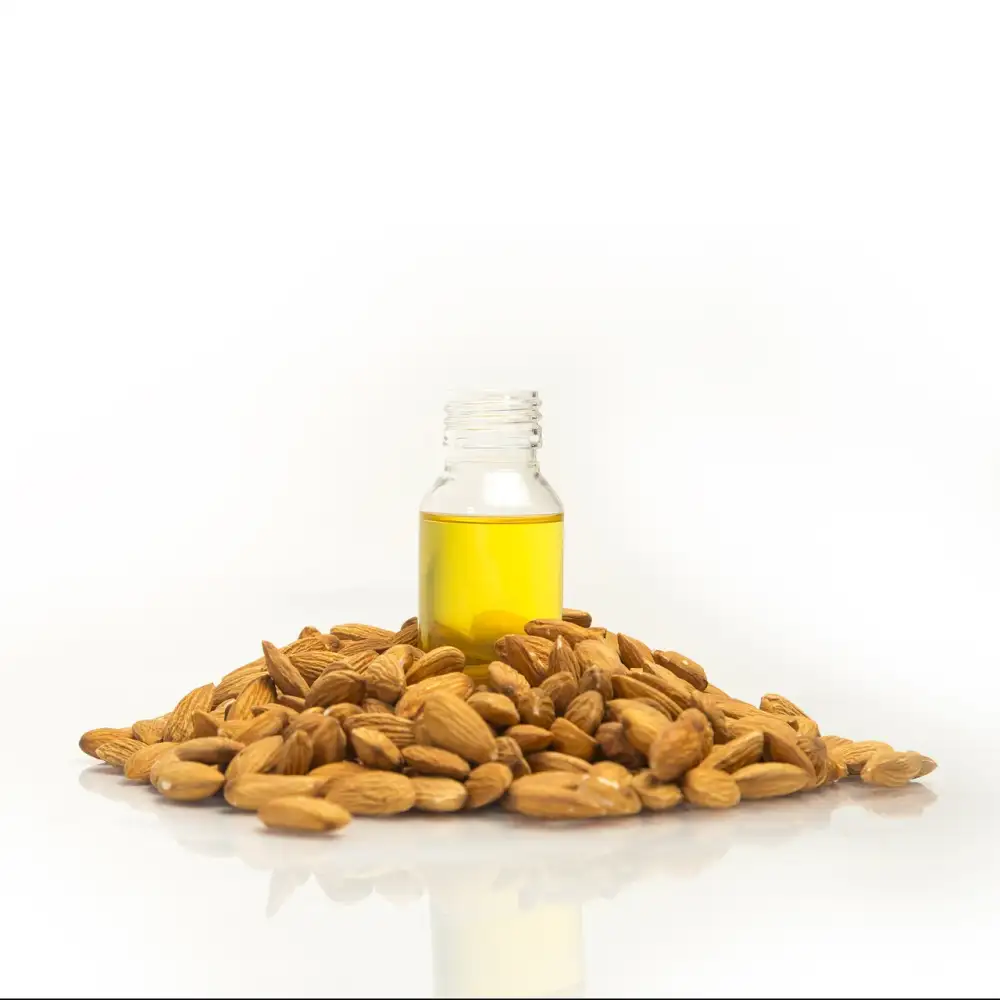The Nutritional Powerhouse: Unleashing the Health Benefits of Seed Oils

- Nutritional Profile of Seed Oils
- Omega Fatty Acids in Seed Oils and their Importance for Health
- Antioxidant Properties of Seed Oils and their Role in Disease Prevention
- Potential Anti-inflammatory Effects of Seed Oils on the Body
- Seed Oils and Heart Health: Lowering Cholesterol and Blood Pressure
- Seed Oils and Brain Health: Enhancing Cognitive Function and Memory
- Seed Oils and Weight Management: Supporting Metabolism and Appetite Control
- Seed Oils and Skin Health: Nourishing and Moisturizing Properties
Seed oils, derived from various seeds such as flaxseed, sunflower, sesame, and pumpkin, have gained popularity for their numerous health benefits. These oils are rich in essential nutrients like vitamins, minerals, and antioxidants. They are also packed with healthy fats, including omega-3 and omega-6 fatty acids. Incorporating seed oils into your diet can promote heart health, boost brain function, support weight management, improve skin health, and provide overall nourishment to the body. Let's explore the nutritional powerhouse of seed oils and unlock their potential for a healthier lifestyle.
Nutritional Profile of Seed Oils
Seed oils are packed with essential nutrients that contribute to a healthy diet. They are rich in vitamins, minerals, and antioxidants. These oils contain high levels of monounsaturated and polyunsaturated fats, which are considered healthier than saturated fats. Additionally, seed oils provide a good source of plant-based protein and dietary fiber. They also contain important micronutrients such as vitamin E, magnesium, and zinc. With their impressive nutritional profile, seed oils offer a wide range of health benefits when incorporated into a balanced diet.
Omega Fatty Acids in Seed Oils and their Importance for Health
Omega fatty acids are essential for maintaining good health. Seed oils are a rich source of these beneficial fats, particularly omega-3 and omega-6 fatty acids. These fatty acids play a crucial role in supporting brain function, reducing inflammation, and promoting heart health. Omega-3 fatty acids have been linked to improved cognitive function and reduced risk of cardiovascular diseases. On the other hand, omega-6 fatty acids help regulate metabolism and support healthy skin. Including seed oils in your diet can ensure an adequate intake of these important nutrients for overall well-being.
Antioxidant Properties of Seed Oils and their Role in Disease Prevention
Seed oils are not only rich in essential nutrients, but they also possess powerful antioxidant properties that play a crucial role in disease prevention. Antioxidants help neutralize harmful free radicals in the body, which can cause oxidative stress and damage cells. By reducing oxidative stress, seed oils can help protect against chronic diseases such as heart disease, cancer, and diabetes. Incorporating seed oils into your diet is a simple yet effective way to boost your antioxidant intake and promote overall health and well-being.
Potential Anti-inflammatory Effects of Seed Oils on the Body
Seed oils have shown potential anti-inflammatory effects on the body. Inflammation is a natural response to injury or infection, but chronic inflammation can lead to various health issues. Seed oils, such as flaxseed oil and hemp seed oil, contain omega-3 fatty acids, which have been found to reduce inflammation in the body. These fatty acids help regulate the production of inflammatory molecules and promote the production of anti-inflammatory molecules. By incorporating seed oils into your diet, you may be able to reduce inflammation and support overall health.
Seed Oils and Heart Health: Lowering Cholesterol and Blood Pressure
Seed oils have been found to have numerous benefits for heart health. One of the key ways in which they contribute to a healthy heart is by helping to lower cholesterol levels. Seed oils, such as flaxseed oil and chia seed oil, are rich in omega-3 fatty acids, which have been shown to reduce LDL (bad) cholesterol levels and increase HDL (good) cholesterol levels.
Additionally, seed oils contain compounds called phytosterols, which are structurally similar to cholesterol. These phytosterols compete with cholesterol for absorption in the digestive system, effectively reducing the amount of cholesterol that is absorbed into the bloodstream.
In addition to lowering cholesterol levels, seed oils can also help to lower blood pressure. The omega-3 fatty acids found in seed oils have been shown to have a positive effect on blood pressure by reducing inflammation and improving blood vessel function.
Including seed oils in your diet can be a simple yet effective way to support heart health. Whether drizzled over salads or used as a cooking oil, these nutritious oils offer a delicious and heart-healthy alternative to traditional cooking oils.
Seed Oils and Brain Health: Enhancing Cognitive Function and Memory
Seed oils have been found to have a positive impact on brain health, specifically in enhancing cognitive function and memory. These oils are rich in omega-3 fatty acids, which play a crucial role in maintaining the health of brain cells and promoting optimal brain function. Omega-3 fatty acids have been shown to improve memory, attention span, and overall cognitive performance. Additionally, seed oils contain antioxidants that help protect the brain from oxidative stress and inflammation, both of which can contribute to cognitive decline. Incorporating seed oils into your diet can provide the necessary nutrients to support brain health and enhance cognitive abilities.
Seed Oils and Weight Management: Supporting Metabolism and Appetite Control
Seed oils can also play a role in weight management by supporting metabolism and appetite control. Certain seed oils, such as flaxseed oil and hemp seed oil, contain high levels of omega-3 fatty acids, which have been shown to help regulate metabolism and increase fat burning.
Additionally, seed oils are rich in fiber, which can help promote feelings of fullness and reduce cravings. This can be particularly beneficial for those looking to manage their weight or control their appetite.
Incorporating seed oils into your diet can be as simple as drizzling them over salads or using them as a dressing for roasted vegetables. They can also be used in cooking or baking as a healthier alternative to other types of oils.
By including seed oils in your diet, you can support your weight management goals while enjoying the nutritional benefits they provide.
Seed Oils and Skin Health: Nourishing and Moisturizing Properties
Seed oils are not only beneficial for internal health but also for external beauty. Many seed oils, such as jojoba oil, argan oil, and rosehip oil, have nourishing and moisturizing properties that can improve the health and appearance of the skin.
These oils are rich in essential fatty acids, vitamins, and antioxidants that help to hydrate and protect the skin. They penetrate deep into the skin's layers, providing long-lasting moisture and preventing dryness and flakiness.
The high content of vitamin E in seed oils is particularly beneficial for skin health. Vitamin E is a powerful antioxidant that helps to neutralize free radicals and protect the skin from damage caused by environmental factors such as UV radiation and pollution.
Seed oils also contain omega-3 fatty acids, which have anti-inflammatory properties. This can help to soothe irritated or inflamed skin conditions such as eczema or psoriasis.
In addition to their moisturizing properties, seed oils can also promote collagen production in the skin. Collagen is a protein that gives the skin its elasticity and firmness. By stimulating collagen production, seed oils can help to reduce the appearance of fine lines and wrinkles.
To incorporate seed oils into your skincare routine, simply apply a few drops onto clean skin or mix them with your favorite moisturizer. You can also use them as natural makeup removers or massage oils.
In conclusion, seed oils have nourishing and moisturizing properties that can benefit the health and appearance of the skin. By incorporating these oils into your skincare routine, you can enjoy hydrated, radiant skin while reaping their numerous health benefits.
Incorporating seed oils into a healthy lifestyle can provide numerous benefits for overall well-being. With their rich nutritional profile, omega fatty acids, and antioxidant properties, seed oils offer a powerhouse of health benefits. From promoting heart health and brain function to supporting weight management and nourishing the skin, these oils have a lot to offer. By including seed oils in your diet, whether through cooking or as a supplement, you can unlock their potential and enhance your overall health. So why not start incorporating these nutritious oils into your daily routine and reap the rewards they have to offer?
Published: 10. 12. 2023
Category: Health



